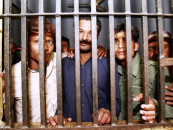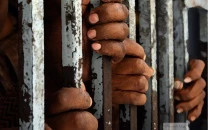Internet users continue to face disruption across country
Slow internet speeds disrupt daily activities in Pakistan, affecting work, education, and telecom profits.

Internet users across Karachi and several other cities in Pakistan are facing severe connectivity issues as disruptions in internet speed persist.
The slow internet speeds have made it difficult for users to send and receive multimedia messages, such as images, videos, and voice notes, on popular applications like WhatsApp.
Both Wi-Fi and mobile data services have been impacted, leaving individuals and businesses grappling with daily challenges. Those working from home, freelancers, digital marketers, and students attending online classes are among the most affected groups, as slow internet speeds hamper their productivity and learning.
In Karachi, Pakistan's economic hub, complaints about slow internet speeds continue to pour in from various localities. Areas like Saddar, Liaquatabad, FB Area, and Gulistan-e-Jauhar have been particularly affected, with users reporting significant delays in sending and receiving audio, video, and images. Some areas have also faced complete interruptions in Wi-Fi services.
According to reports from IT experts, the ongoing internet disruption is costing Pakistan's economy billions of rupees every day. The country's telecom sector, which generates a daily profit of approximately Rs3 billion, is facing a major setback, with 3G and 4G networks contributing to up to 70% of the telecom sector’s daily revenue.
The slow internet speed is adversely impacting not just the telecom industry but also several other sectors dependent on smooth connectivity for business operations.
The current internet crisis highlights the urgent need for long-term solutions to stabilize and improve Pakistan's digital infrastructure, especially in an era where remote work, online education, and digital business have become crucial.



















COMMENTS
Comments are moderated and generally will be posted if they are on-topic and not abusive.
For more information, please see our Comments FAQ